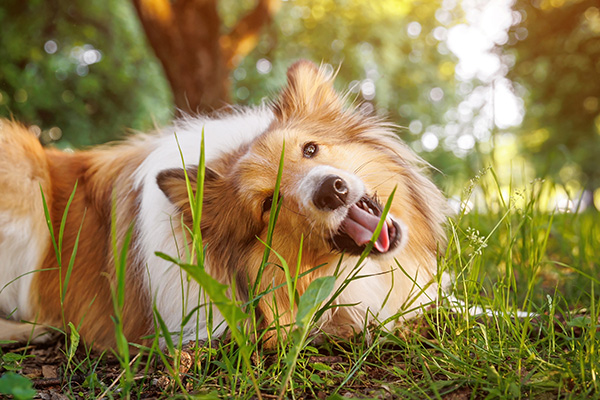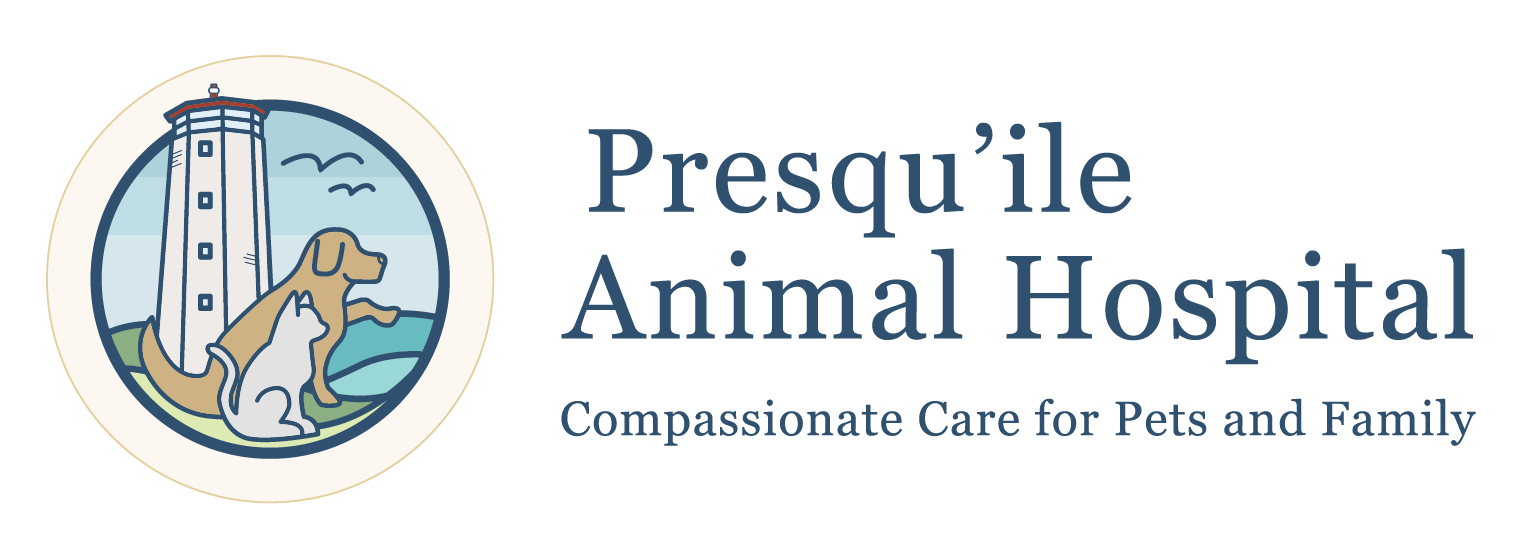Have you ever found yourself facing the not-so-pleasant situation of a dog with diarrhea? You’re not alone. In our veterinary office, we understand the concern and urgency that comes with this messy issue. Fear not – this is today’s topic, we’ll explore the common causes of canine diarrhea and provide a practical guide on what to do to help your furry friend get back to their happy, healthy self. 

- Instinctive Behavior: Dogs, despite being domesticated, still retain some instinctual behaviors from their wild ancestors. In the wild, canines would consume plant material as part of their diet, which could include grass. While today’s domestic dogs have access to nutritionally balanced diets, the instinct to graze may persist.
- Digestive Aid: Some dogs may eat grass as a way to induce vomiting. When a dog has an upset stomach, they may instinctively seek out grass to help themselves vomit and alleviate discomfort. However, it’s essential to note that not all dogs who eat grass are doing so for this purpose.
- Dietary Deficiency: In some cases, dogs may eat grass if they are lacking certain nutrients in their diet. While modern dog food is formulated to meet their nutritional needs, occasional grazing on grass might be their way of seeking additional nutrients.
- Boredom or Anxiety: Dogs, like humans, can engage in certain behaviors out of boredom or anxiety. If your dog is left alone in the yard for an extended period, they might turn to grass as a way to pass the time or self-soothe.
- Taste and Texture: Dogs explore the world with their mouths, and the taste and texture of grass might simply be appealing to some dogs. It’s their way of experiencing the environment around them.
Should You Be Concerned? In most cases, occasional grass nibbling is harmless and may not be a cause for concern. However, it’s crucial to monitor your dog’s behavior and ensure their safety. Here are a few considerations:
- Pesticides and Chemicals: Be cautious if your dog is eating grass in an area treated with pesticides or chemicals. Choose safe, untreated areas for play and exploration.
- Monitor Frequency: Occasional grass munching may not be worrisome, but if your dog develops a habit of consuming large amounts or shows signs of digestive upset, it’s wise to consult with your veterinarian.
- Provide a Balanced Diet: Ensure your dog is on a nutritionally balanced diet appropriate for their age, size, and health condition to address any potential dietary deficiencies.
The mystery of why dogs eat grass is multi-faceted, with reasons ranging from instinctive behaviors to potential dietary needs. As a responsible pet owner, it’s essential to observe your dog’s habits, provide a well-rounded diet, and create a safe environment for them to explore. If you ever have concerns about your dog’s behavior or overall health, consulting with your veterinarian is the best course of action. Happy green nibbling, furry friends!
